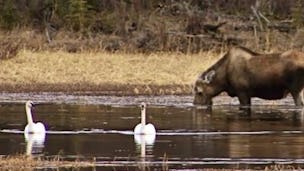This course deals with both renewable and non-renewable energy. By applying scientific principles and considering real-world examples, you will examine:
1. Non-renewable fossil fuels with a focus on coal, petroleum and natural gas and the benefits and consequences of using each. 2. Renewable fuels such as wind and solar and identify that even renewable “green” energy sources have impacts as well as benefits. 3. Biodiversity and global change, which are the integrating units of environmental science. Additionally, you will explore answers to the following questions: 1. How do we evaluate coal, oil, and natural gas from an environmental science perspective? 2. What regulates energy conversions and losses in human-built systems? 3. How much energy “flows through your fingertips?” 4. How do we evaluate hydro, solar, wind, and biomass from an environmental science perspective? 5. How can we increase efficiency and conservation? You also take a tour of the Dartmouth Powerplant and listen to a conversation with Dartmouth Sustainability Director, Rosi Kerr. Furthermore, you will take a field trip to a PV tracker solar system, visit a straw bale house, and have a conversation about waste vegetable oil as an energy source in India.














